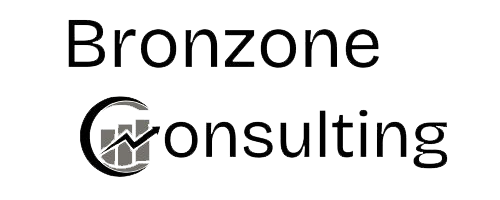Decoding the Metaverse: A Comprehensive Report
The metaverse, a concept that has been gaining traction in recent years, is poised to revolutionize the way we interact with the digital world. This immersive virtual environment, powered by cutting-edge technologies like augmented reality (AR) and virtual reality (VR), has the potential to transform various industries, including education, gaming, entertainment, healthcare, and e-commerce.
This comprehensive report delves into the intricacies of the metaverse, exploring its market size, trends, drivers, challenges, and potential across different regions. It also examines the metaverse’s significance in the Middle East, particularly in Dubai, a region that is actively embracing this transformative technology.
Market Size of Metaverse in Americas, EMEA, and APAC
The global metaverse market is projected to reach a staggering $828.95 billion by 2028, growing at a CAGR of 67.8% from 2022 to 2028. This rapid growth is being fueled by increasing adoption of AR/VR technologies, growing demand for virtual experiences, and expanding applications across various industries.
Key Trends Shaping the Metaverse
Several key trends are shaping the evolution of the metaverse, including:
• Decentralization: The metaverse is moving towards a decentralized model, with blockchain technology enabling ownership of virtual assets and governance of metaverse platforms.
• Socialization and Collaboration: The metaverse is becoming a hub for social interaction and collaboration, providing opportunities for virtual events, meetings, and community building.
• Experiential Retail: The metaverse is transforming the retail landscape, enabling immersive product experiences, virtual showrooms, and interactive shopping experiences.
• Education and Training: The metaverse is revolutionizing education and training, offering interactive learning environments, virtual simulations, and personalized learning experiences.
Drivers Fueling the Metaverse’s Growth
The metaverse is being driven by several key factors, including:
• Technological Advancements: The rapid development of AR/VR technologies, edge computing, and artificial intelligence (AI) is enabling the creation of more immersive and interactive metaverse experiences.
• Growing Consumer Interest: Consumers are increasingly seeking engaging and immersive digital experiences, driving demand for metaverse applications.
• Enterprise Adoption: Businesses across various industries are recognizing the potential of the metaverse to enhance customer engagement, improve collaboration, and drive innovation.
Challenges Facing the Metaverse
While the metaverse holds immense potential, it also faces several challenges, including:
• Technology Maturation: The metaverse is still in its early stages of development, and there are challenges related to technology maturity, scalability, and user experience.
• Regulatory Uncertainty: The lack of clear regulatory frameworks for metaverse activities poses challenges for businesses and users.
• Privacy and Security Concerns: Protecting user privacy and ensuring data security are critical issues that need to be addressed in the metaverse.
Market Dynamics and Future Outlook
The metaverse is still evolving, and its future is uncertain. However, it is expected to play a significant role in shaping the future of digital interactions, commerce, and social experiences.
Potential in the Middle East
The Middle East is poised to be a key player in the metaverse, with countries like Dubai actively investing in and developing metaverse projects. The region’s strong infrastructure, tech-savvy population, and government support provide a conducive environment for metaverse adoption.
Dubai’s Metaverse Initiatives
Dubai is taking a proactive approach to embracing the metaverse, with several initiatives underway:
• Dubai Metaverse Strategy: The Dubai Metaverse Strategy outlines a roadmap for developing the city as a global metaverse hub.
• Virtual Dubai: A digital twin of Dubai is being developed to enhance urban planning, tourism, and business opportunities.
• Metaverse-Enabled Education: The Dubai Ministry of Education is exploring the use of metaverse platforms for virtual learning experiences.
Recommendations and Strategies for Growth
To drive the growth of the metaverse, several strategies can be implemented:
• Invest in Technology Development: Continued investment is needed in developing innovative metaverse technologies and platforms.
• Promote Industry Collaboration: Foster collaboration between businesses, governments, and academia to accelerate metaverse adoption.
• Address Regulatory Barriers: Work towards establishing clear regulatory frameworks that support responsible metaverse development.
• Embrace Privacy and Security Practices: Implement robust privacy and security measures to protect user data and ensure trust in the metaverse.
Dubai’s Metaverse Implementation in Different Sectors
Dubai is exploring the potential of the metaverse across a wide range of sectors, including:
• Tourism and Hospitality: The metaverse can be used to create immersive virtual experiences for tourists, allowing them to explore hotels, attractions, and events before they arrive.
• Retail and E-commerce: Metaverse platforms can be used to create virtual shopping experiences, including virtual showrooms, interactive product demonstrations, and personalized recommendations.
• Education and Training: The metaverse can provide interactive and engaging learning environments for students, enabling virtual simulations, collaborative learning experiences, and personalized instruction.
• Healthcare and Wellness: The metaverse can be used to provide remote consultations, virtual rehabilitation therapy, and immersive medical training experiences.
• Finance and Banking: The metaverse can facilitate virtual banking services, including opening accounts, managing finances, and conducting transactions.
• Real Estate and Property Development: Metaverse platforms can be used to showcase properties, organize virtual property tours, and provide interactive virtual home staging experiences.
Recommendations and Strategies to Drive Metaverse Growth in Dubai
To accelerate metaverse adoption and growth in Dubai, the following strategies can be implemented:
• Establish a Metaverse Hub: Create a centralized platform or location to connect metaverse businesses, developers, investors, and users.
• Invest in Metaverse Talent: Foster the development of a skilled workforce with expertise in metaverse technologies and platforms.
• Facilitate Cross-Industry Collaboration: Encourage partnerships between metaverse companies and traditional industries to explore innovative applications.
• Invest in Metaverse Infrastructure: Enhance the city’s digital infrastructure to support the high-bandwidth requirements of metaverse applications.
• Promote Metaverse Education: Raise awareness about the metaverse and its potential benefits through educational programs and initiatives.
• Encourage Metaverse Research and Development: Support research and development initiatives focused on advancing metaverse technologies and applications.
Industries Currently Embracing Metaverse Technology
Several industries are already exploring the use of metaverse technology, including:
• Gaming: Metaverse platforms are being used to create immersive and interactive gaming experiences, including virtual worlds, multiplayer games, and virtual reality experiences.
• Fashion and Retail: The metaverse is being used to showcase virtual fashion collections, create virtual fitting rooms, and provide interactive product experiences.
• Real Estate and Property Development: Metaverse platforms are being used to showcase properties, conduct virtual property tours, and provide interactive virtual home staging experiences.
• Entertainment and Media: The metaverse is being used to create virtual events, concerts, and performances, as well as provide innovative entertainment experiences.
• Art and Culture: The metaverse is being used to exhibit digital art, host virtual art galleries, and provide immersive virtual cultural experiences.
Market Size and Forecast for Metaverse
The global metaverse market is projected to reach a staggering $828.95 billion by 2028, growing at a CAGR of 67.8% from 2022 to 2028. This rapid growth is being fueled by the increasing adoption of AR/VR technologies, growing demand for virtual experiences, and expanding applications across various industries.
Dubai is positioning itself as a global hub for metaverse innovation, with ambitious plans to develop the city as a leading metaverse destination. By embracing the metaverse, Dubai has the potential to revolutionize various industries, attract investment, and foster innovation. As the metaverse continues to evolve, Dubai is well-positioned to capitalize on its transformative potential.

